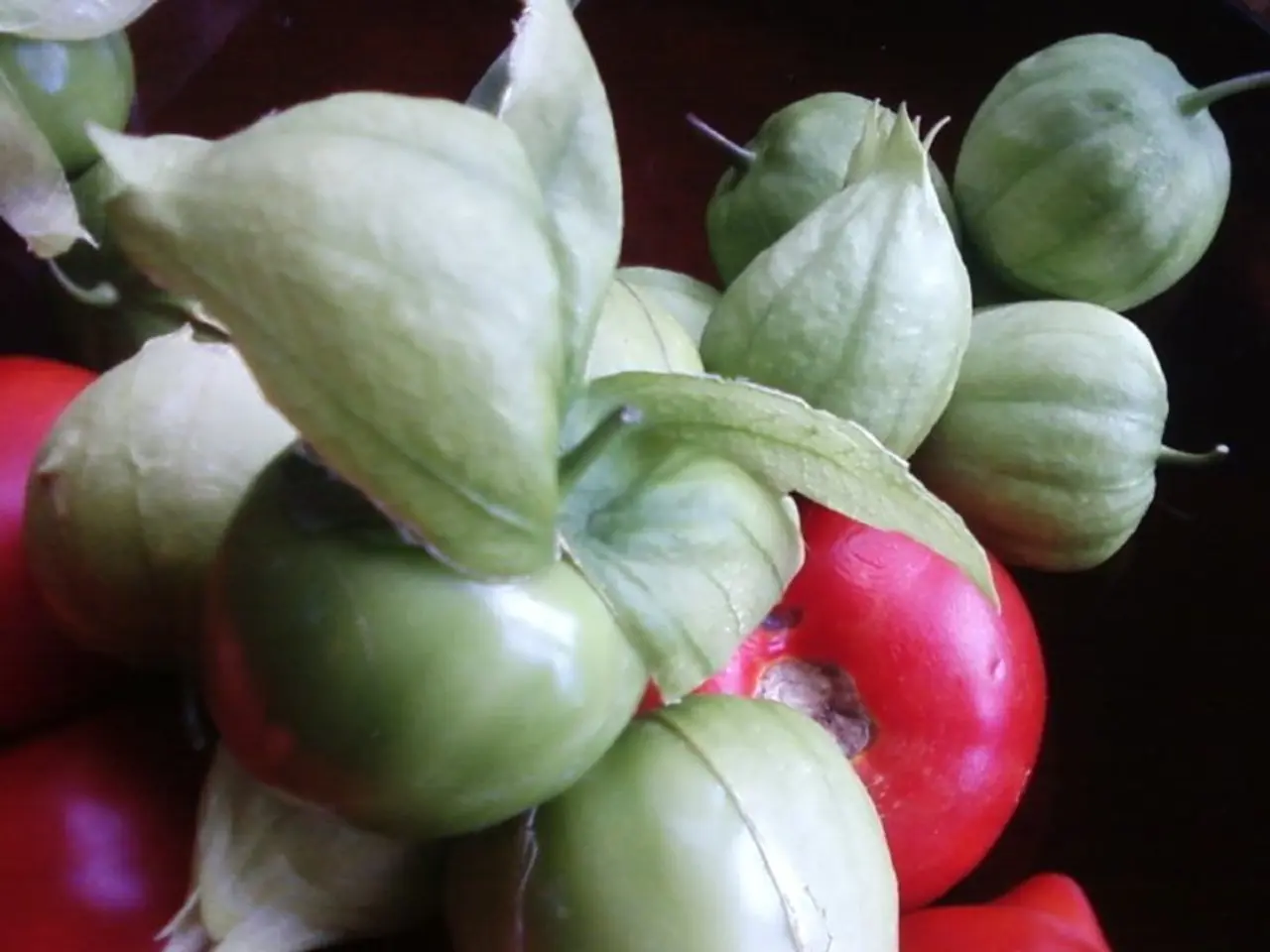Avoiding Heat-Related Damage to Your Vegetables: Strategies for Hot Summers
Protecting Your Vegetable Garden from Heat Stress
As the summer heat sets in, it's crucial to take measures to keep your vegetable garden thriving. Here are some strategies to help your plants stay cool, hydrated, and stress-free.
Shade
One of the most effective ways to protect your plants from the scorching sun is by providing shade. Use shade cloth with a density of 30–70% to shield your plants during the hottest parts of the day. This not only reduces overheating but also prevents sunscald on sensitive vegetables like tomatoes, peppers, and cucumbers. You can also create natural shade by using taller plants or fencing [1][4].
Irrigation
Irrigation is key to preventing heat stress in plants, especially during dry weather. Water deeply and smartly, ideally early in the morning or late in the evening to minimize evaporation. Use soaker hoses or drip irrigation to deliver water directly to the root zone, avoiding wetting foliage which can promote disease. Deep, slow watering encourages roots to grow deeper, improving drought resilience [1][3][4].
Mulch
Applying 2 to 3 inches of organic mulch (such as straw, wood chips, or grass clippings) around plants can help cool the soil, reduce moisture evaporation, suppress weeds, improve soil structure, and protect roots from heat stress [2][3][4]. Just remember to keep the mulch away from the plant stems to prevent rot.
Additional Strategies
Trellises and pergolas can help create shade to protect plants during the hottest time of the day. In areas prone to oppressive heat, consider constructing a more elaborate structure [1]. Regularly checking your drip irrigation system is important to ensure all plants are receiving an adequate water supply [4].
Keeping your plants well-hydrated is essential for them to fight off stress caused by scorching temperatures. Ensuring they have access to rich organic soil, organic fertilizer, and plenty of water can also help them deal with heat stress [3].
High temperatures can interfere with photosynthesis and cause a buildup of toxins in plants. Using a shade cloth for gardens can help protect plants from the summer heat, reducing the risk of leaf scorch, leaf drop, and leaf sunburn [2].
By integrating these approaches, your vegetable garden maintains cooler soil, retains moisture, reduces plant stress, and sustains healthier growth during hot weather [1][2][3][4].
By integrating shade strategies, such as shade cloth or tall plants, and optimizing irrigation through deep, smart watering, you can help maintain a home-and-garden lifestyle that thrives even in the face of summer heat stress. Additionally, applying mulch not only cools the soil and reduces moisture evaporation but also improves the soil structure and suppresses weeds, further promoting a healthy gardening environment.




